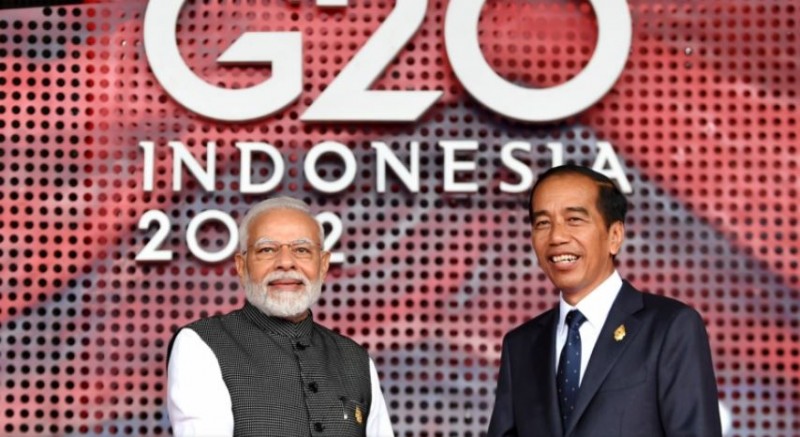
BALI: President Joko Widodo of Indonesia and leaders of the International Partners Group (IPG) of like-minded nations, co-led by the US and Japan, on Tuesday launched a Just Energy Transition Partnership (JETP) developed with Indonesia during its G20 Presidency at the Partnership for Global Infrastructure and Investment (PGII) event at the G20 Summit.
By pursuing an ambitious and just power sector transition in Indonesia, the historic partnership, -- which includes Canada, Denmark, the European Union, France, Germany, Italy, Norway, and Britain, -- supports a trajectory consistent with staying inside the 1.5 degree Celsius global warming limit.
By shifting its projected emissions peak forward to 2030, Indonesia will work with international partners to develop a comprehensive investment plan that will achieve new, significant targets and policies to reduce GHG emissions and assist impacted communities.
These measures include capping power sector emissions at 290 megatons of CO2 in 2030, down from the baseline value of 357 MT CO2 and setting a goal to achieve net zero emissions in the power sector. Accelerating the deployment of renewable energy would almost double the overall amount of renewables deployed over the course of this decade compared to present projections, with renewable energy generation accounting for at least 34% of all power generation by 2030.
This long-term collaboration plans to use a combination of grants, concessional loans, market rate loans, guarantees, and private investments to raise an initial USD 20 billion in public and private finance over a three- to five-year period in order to meet these goals.
The Glasgow Financial Alliance for Net Zero (GFANZ), which is coordinating contributions to the JETP, has received pledges of USD 10 billion from the public sector and a commitment from a group of private financial institutions, including Bank of America, Citi, Deutsche Bank, HSBC, Macquarie, MUFG, and Standard Chartered, to work to mobilise and facilitate investments of USD 10 billion from this group.
The cooperation will also make use of the multilateral development banks' knowledge, resources, and operations.
Success in the partnership is anticipated to help advance Indonesia's power sector's peaking date by roughly seven years and produce a cumulative reduction in greenhouse gas emissions of more than 300 megatons through 2030 and well over 2 gigatons through 2060 compared to Indonesia's current trajectory.
The parties will collaborate over the following six months to create a detailed plan for investments, finance, and technical help to meet these lofty objectives.
"Indonesia is determined to utilise our energy transition to establish a green economy and drive sustainable development," stated Indonesian President Joko Widodo. We are appreciative of our international partners' collaboration and help in realising its full implementation, which will quicken this transformation.
This alliance will teach the world community important lessons that may be applied to other nations to help us achieve our common climate goals through effective teamwork. In order to emphasise the significance of this alliance, US President Joe Biden said: "Indonesia has demonstrated outstanding leadership and ambition throughout the creation of our collaboration. The resulting revised and expedited targets show how nations may significantly reduce emissions and develop renewable energy while moving toward a commitment to establishing high-caliber jobs and defending communities and livelihoods.